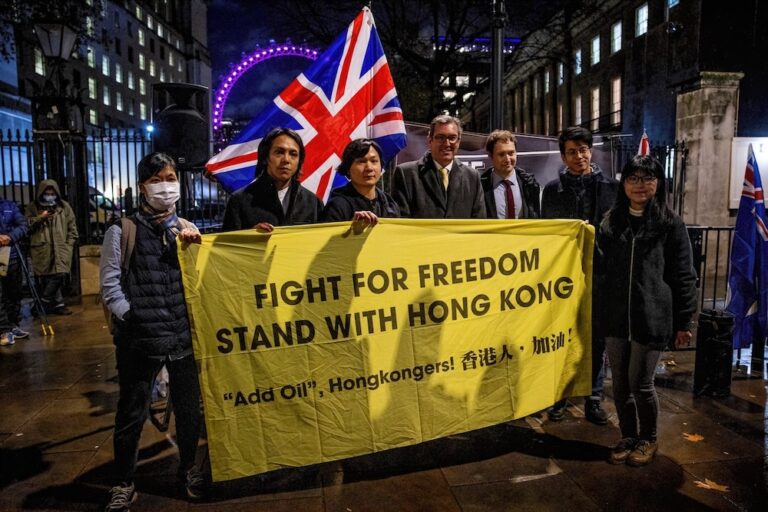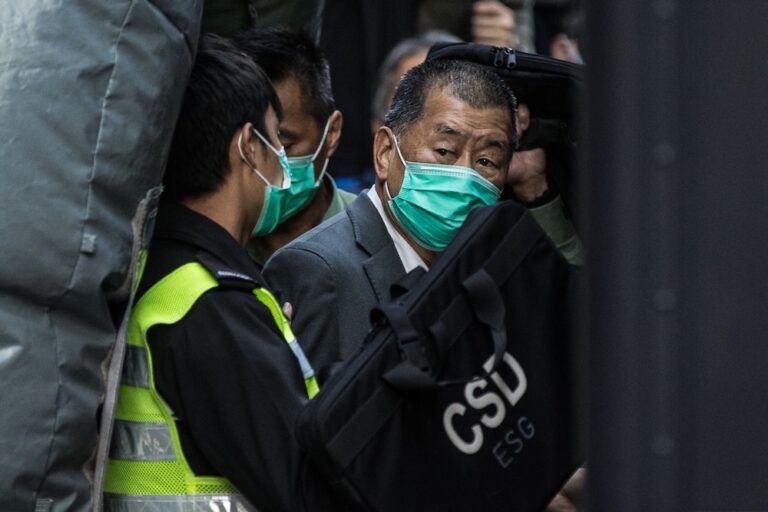Journalists have complained of police discrimination in media access to an area allocated for reporting on the commemoration of the 1989 Tiananmen Square massacre.
(IFJ/IFEX) – April 16, 2012 – The International Federation of Journalists (IFJ) urges the Commissioner of Hong Kong, Andy Tsang Wai-Hung, to cease the government’s discrimination against the media and the maintenance of public order as an excuse to restrict press freedom.
According to reports from various Hong Kong media, Hong Kong Police have allocated a location relatively near to the Chinese Liaison Office, the representative body of the Central Government of the People’s Republic of China, as a media zone for reporting on the commemoration of the 1989 Tiananmen Square massacre.
However, journalists have complained of police discrimination in media access to the area. Police have only allowed journalists from four selected television media outlets to enter the zone.
Patrick Kwok Pak-chung, Senior Superintendent of the Police Public Relations Branch explained that only four TV stations could enter the zone due to a lack of space. He further said that this arrangement had been communicated to the Hong Kong Journalists Association (HKJA) and that all print media organisations had been informed about the arrangements. However, Mak Ying-Ting, Chairwoman of the HKJA, criticised the Police for providing the information at the last minute, rather than engaging in genuine consultations on the issue.
Lam Chun-tung, Chairman of the Hong Kong Press Photographers’ Association, has also raised complaints of increasing discrimination and harassment by Hong Kong’s Police. He also said that Police had merely informed his organisation of the new arrangements, without giving any details.
Over the last twelve months, journalists were harassed, detained and arrested on a number of different occasions.
On March 25, Poon Ching-Ki, photographer, was arrested by police while attempting to take a photo of a public demonstration. Prior to this, two journalists including a citizen journalist were also detained and arrested while they were taking photos of a rally on July 1, 2011.
On August 18, 2011, Sit Ka-Kit, a camera operator with Now Television, was prevented by an unknown person from filming the visit of Chinese Vice Premier Li Keqiang to Laguna City, Kowloon, Hong Kong. A police officer in uniform failed to act on Sit’s complaint that he had been prevented from performing his professional duty, and that the person responsible had refused to identify themselves.
The Security Panel of Hong Kong’s Legislative Council held a special session to investigate police conduct operations during the visit. During the meetings, IFJ proposed a number of recommendations to improve relations between the media and police, but none were accepted by the police. However, the Police did promise to continue to maintain clear communication channels with the media.
“Based on the latest incidents, it is clear that Hong Kong’s police have failed to live up to their responsibility to maintain respectful and transparent relationship with the media,” IFJ Asia-Pacific Office said.
“Rather they have increased discrimination against media outlets and impeded the media’s ability to do its job of reporting the news.
The creation of ‘media zones’ are unnecessary in truly democratic societies where local authorities respect press freedom.
The Hong Kong Police’s decision to allocate ‘media zones’ indicates an intention to restrict media movement and a clear misunderstanding of the principles of press freedom.”
The IFJ urges the Chief Executive of Hong Kong to address growing concerns about restrictions on media freedoms in Hong Kong.
We request that the Chief Executive instruct all senior government officials and police officers to fully recognise and implement the rights to press freedom enshrined in Hong Kong’s Basic Law.


